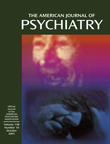Freud: Political and Social Thought, 3rd ed.
Another Freud book. That was my first reaction on receiving this review copy. Does the world really need another Freud book? But it turns out that this one is a reissue of a work first published in the 1960s that well deserves its continued lease on shelf space. It is a work of intellectual history and a reminder of a simpler time in that discipline; a time before it was necessary to inflict ponderous, verbose “methodologies” on one’s subject. It sufficed Paul Roazen to have a few understandable theses, a crisp writing style, and an encyclopedic command of apt Freud quotes apropos of any point he was trying to make.
Freud influenced social thought on at least three separate levels. First, and probably of least enduring significance, was through his socially focused books themselves, works like The Future of an Illusion and Totem and Taboo, which—apart from Civilization and Its Discontents, now ensconced in the liberal arts canon—are rarely read anymore and feature farfetched notions like “the primal parricide.” Freud himself shared this assessment, it seems. Roazen quotes Freud as saying that Civilization and Its Discontents “strikes me…as quite superfluous in contrast to earlier works which always sprang from some inner necessity. But…one cannot smoke and play cards all day” (p. 103). And of The Future of an Illusion he was even more blunt: “This is my worst book! It’s the book of an old man” (p. 103).
A second and more important way in which Freud influenced how we postmoderns think about society has been the application of his interpretive methods (derived from the study of individual psychopathology and dreams) to the study of human cultures, be they tribal or contemporary. The appreciation of society’s unconscious motivations and conflicts, and of the need to decode social structures and cultural productions such as folk myths, art, and advertising, is an extremely fertile legacy. Its details have been elaborated less by Freud himself than by such denizens of the Seine as Paul Ricouer, Jacques Lacan, and Claude Levi-Strauss (who memorably recalled his first reading of Freud in Tristes Tropiques[1].) It is this level of influence that keeps professional social theorists and critics reading Freud today, while few psychiatrists still do.
It is a third level that comes through most clearly in Roazen’s book, first published before the French theorists attained their full response from American social thinkers. This third and less academic thread figures especially in Roazen’s final chapter: Freud’s profound influence on the way most reflective people in the developed world think about themselves and their societies ever since he wrote. As Roazen points out, the very greatest thinkers tend to have an unresolved polarity at the heart of their work. In Freud’s case, this polarity is “between the need for individual fulfillment and the necessity of social coercion” (p. 255).
Freud was a firsthand witness to the European upheavals of his time. Forced to sign a statement attesting to his fair treatment by the Nazis as he left Vienna, he wryly added, “I can heartily recommend the Gestapo to anyone” (p. 127). His unsurpassed pessimism about human nature is too strong for most Americans to take. “Men are not gentle creatures who want to be loved.…Their neighbor is for them…someone who tempts them to satisfy their aggressiveness on him, to exploit his capacity for work without compensation, to use him sexually without his consent…to humiliate him…to torture and kill him” (2, p. 58).
But beneath this pessimism, unacknowledged, was an implication that truth, or insight, can make us free; a conflation of the moral ideas of freedom and justice with an implicit psychoanalytic ideal of health conceived as the freer flow of an individual’s instincts. “We seek…to enrich [the patient] from his own internal sources…energies which, owing to repression, are inaccessibly confined in his unconscious” (p. 277).
Principally, it has been expansive Americans who have seized upon and elaborated this Romantic leitmotif in Freud, with our humanistic, client-centered, Gestalt, and self psychology movements (many of them pioneered by European expatriates). But we discard Freud’s pessimism at our own peril.
Unlike many psychodynamic psychiatrists, I have never seen Freud as a personal hero, partly because of the extent to which his own glaring conflicts colored his theories. But I emerge from this book with much more respect for how well he did keeping himself out of his formulations. This was a man who never felt any “craving…to help suffering humanity” (p. 108) and who wrote of us human beings that “in my experience most of them are trash” (p. 245). He nevertheless provided us with new and powerful means of helping and understanding each other.
To whom should I recommend this book? Not to Freud-steeped senior analysts, who either will have read it in earlier editions or will find much of it old news. And probably not to most young psychiatrists, who with their pressing clinical concerns and more recent educations will find current books by writers such as Nancy McWilliams (3), Glen Gabbard (4), or even (in a less didactic vein) myself (5) to be of more use.
No, this is a work of intellectual history, from which one gets a better idea of what Freud really thought about society before another generation or two of Freud scholars and social theorists further submerged the vibrant, uncompromising, and often self-contradictory personality that shines through its pages.
1. Levi-Strauss C: Tristes Tropiques (1908). New York, Viking Penguin, 1992Google Scholar
2. Freud S: Civilization and Its discontents (1930). Translated by Strachey J. New York, WW Norton, 1962Google Scholar
3. McWilliams N: Psychoanalytic Diagnosis. New York, Guilford, 1994Google Scholar
4. Gabbard G: Psychodynamic Psychiatry in Clinical Practice, 3rd ed. Washington, DC, American Psychiatric Press, 2000Google Scholar
5. Genova P: The Thaw:24 Essays in Psychotherapy. Pittsburgh, Dorrance, 2000Google Scholar



